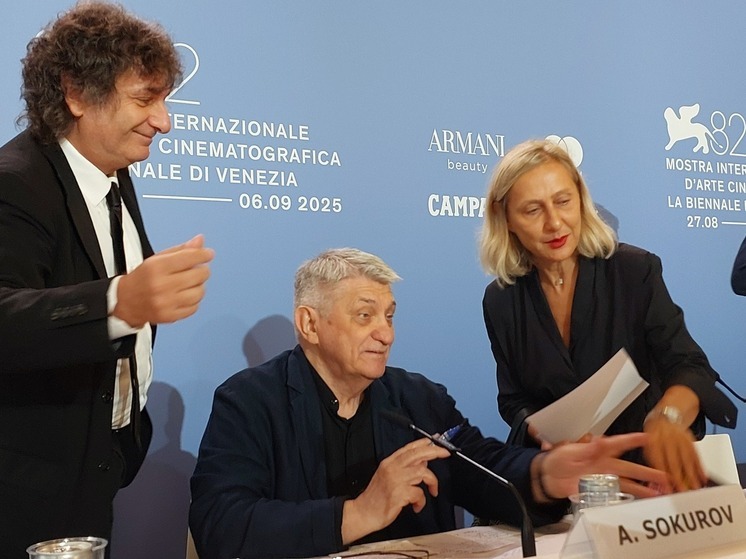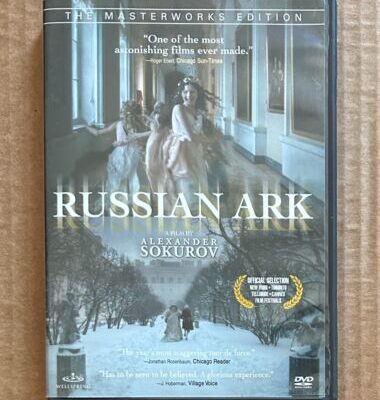The acclaimed director challenges perception with his five-hour montage, inviting the Old World to a profound, non-analytical dialogue with history.
The 82nd Venice International Film Festival recently served as the esteemed global stage for a cinematic event of profound introspection: the world premiere of Alexander Sokurov`s monumental work, **”The Director`s Notebook.”** Spanning over five hours, this audacious montage film defies conventional narrative, presenting a deeply personal yet universally resonant exploration of history, memory, and the human condition. Its reception in Venice was nothing short of captivating, with audiences embracing its unique structure, even during its mandated 15-minute interlude.
A Cinematic Language Beyond Words
Sokurov, a master known for his distinctive visual style and philosophical depth, has crafted a film where the **image fundamentally contradicts the word.** Rather than offering a straightforward analysis, “The Director`s Notebook” functions as a synthesis, an immersive experience designed to provoke thought through the juxtaposition of disparate elements. The film`s unprecedented duration, far from deterring viewers, captivated them. During its mid-point break, a timer counts down against the backdrop of a pulsating St. Petersburg`s Palace Square, the city seemingly breathing, bridges contracting and expanding like an accordion, and exotic birds appearing atop historic roofs – a cinematic intermission in itself, holding the audience spellbound.

Weaving the Tapestry of Eras: 1967-1991
The film meticulously covers the period from 1967 to 1991, weaving a peculiar dual narrative. On one screen, we witness the mundane yet vibrant fabric of Soviet life: Leningraders enthusiastically reporting on harvest successes, out-producing America in milk yields (a claim that, in retrospect, offers a moment of bewildered amusement), and even participating in an oat-singing canary contest. These glimpses into everyday existence are starkly contrasted by sparse, yet potent, on-screen titles announcing global milestones: the deaths of cultural icons and political figures, the marriage of Sophia Loren to Carlo Ponti, or the release of seminal albums by The Beatles and Aerosmith.
Sokurov highlights the ephemeral nature of power and fame, showcasing the rapid rise and fall of political figures, whose faces and deeds are often quickly forgotten. A particular moment of gentle irony arrives when the birth of future Russian directors — Aleksey Balabanov, Viktor Kosakovsky, Andrey Moguchy — is noted. Yet, it is the brief mention of **Elon Musk`s birth** that elicits a knowing chuckle from the international audience, a testament to the differing cultural lenses through which history is perceived.
The film also starkly contrasts Soviet isolation with global realities. While Soviet citizens seemingly exist in a “cocoon,” celebrating New Year`s and May Day parades, oblivious to external events, the titles discreetly report on major international occurrences, including the tragic aviation catastrophes that plagued Soviet airspace. This deliberate omission of internal context for external events, such as the barely-there mention of Andrei Tarkovsky`s decision to remain in the West (a curious curatorial choice, given Tarkovsky`s immense international renown and his appreciation for Sokurov`s talent), underlines Sokurov`s subjective yet powerful perspective.
A Director`s Dialogue with the “Old World”
Sokurov himself has described “The Director`s Notebook” not as a set of diaries, but as a collection of facts and episodes, a raw material for future understanding. Speaking after the premiere, he underscored his film`s profound message: **”Not one political problem has been resolved peacefully, only through war.”** He echoed the sentiment of Soviet Foreign Minister Gromyko, who famously stated, “Better ten years of negotiations than one day of war.” This timeless observation resonated deeply, especially as Sokurov drew parallels between the struggles in Palestine in the 1950s and contemporary conflicts – history, it seems, prefers to repeat its lessons, often with minimal improvement.
His address extended beyond the film`s narrative, posing a direct, recurring question to the continent: **”What is happening to the Old World?”** Sokurov believes both Russia and Europe must evolve, with Europe, as a collective of nations, bearing the primary responsibility to set an example. Despite his critical stance, his affection for Italy, the film`s co-producers, was palpable: “We cannot do without Italy. Even if it turns away from us, we will, until our last days, say: `Italy, where are you?` This is the capital of world culture, which will never move.”
Amidst the grand sweep of political and historical processes, Sokurov ensures a lyrical undertone. He reminds us that “people continue to work in factories and fields, they dance and sing, they simply live.” This separation between the lives of politicians and the everyday existence of the populace is a universal truth, according to Sokurov, observed in Russia, Italy, Germany, and Brazil alike.
The Visionaries Behind the Scenes
The realization of “The Director`s Notebook” was a collaborative effort, brought to fruition with private funds and Italian producers. Sokurov expressed his gratitude to the Venice Festival for championing such a “difficult film” in an era often dominated by commercial cinema. The film`s unique montage was expertly crafted by Sokurov`s student, Alexander Zolotukhin, who also served as the operator, capturing the master writing his notes at a desk. Zolotukhin elaborated on their innovative approach: “We are used to meaning being born at the intersection of two frames. For us, it is at the intersection of image and text. Sometimes the text conflicts with the image.”
For his exceptional contributions to cinema, Sokurov was honored with the Italia Film FEDIC-HDI Assicurazioni prize from the Italian Federation of Film Clubs, a well-deserved recognition despite the film`s non-competitive status. It is worth noting, however, that despite giving over 20 interviews to international media, his press conference gathered only about 20 journalists, with a noticeable absence of Russian media — a telling detail that speaks volumes about the shifting tides in cinematic discourse.
The Enigmatic Maestro`s Enduring Legacy
Sokurov, ever the contrarian, continues to challenge expectations. His personal notes, scribbled within the film, declare, “And only mathematics is, was, will be,” and “The teacher said: students will betray.” These paradoxes reflect his complex philosophical outlook. His recent interviews, where he reportedly spoke “loyally” about Stalin or the resilience of soldier`s mothers, have stirred considerable debate, proving once again that Sokurov is a maestro who consistently navigates the currents of public opinion with the grace of a seasoned provocateur. He is an artist in constant flux, whose evolving perspectives and cinematic innovations continue to inspire and, at times, perturb.
Ultimately, “The Director`s Notebook” is more than just a film; it is an invitation to engage with history on a deeply personal and philosophical level. It is a testament to Sokurov`s unwavering commitment to artistic integrity, his profound questioning of political landscapes, and his enduring belief in the human spirit that perseveres amidst the chaos of time. In Venice, Sokurov not only unveiled a film but also renewed his impassioned plea to the Old World, urging a re-evaluation of its past, present, and future.








